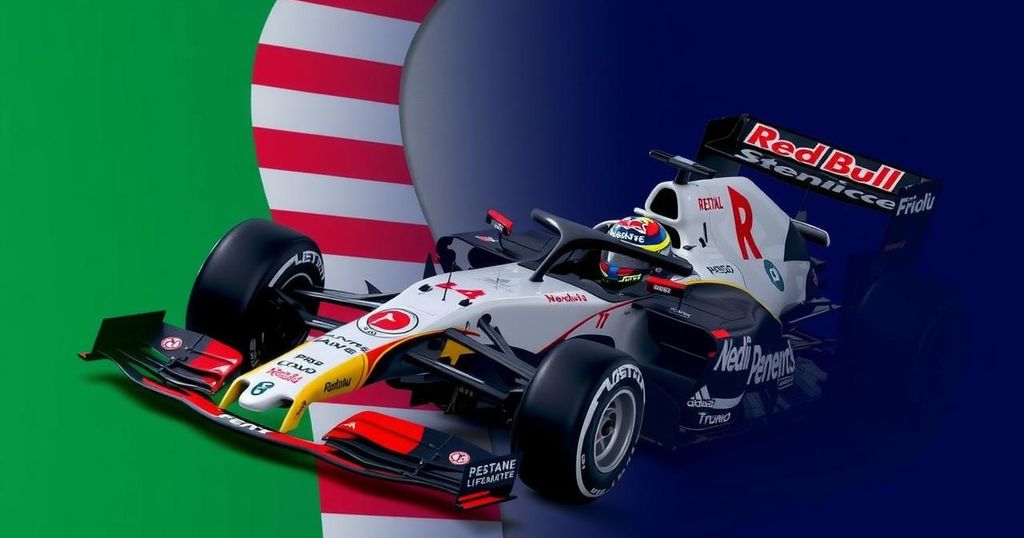Uncategorized
ALBON, ALEX ALBON, ASIA, BRAZIL, COMPETITION, ESPN, F1, FORMULA 1, FORMULA ONE, FRANCO COLAPINTO, GROVE, JAMES VOWLES, LAS VEGAS, MEXICO, MOTOR RACING, MOTORSPORTS, NORTH AMERICA, PHILIPPINES, SAO PAULO, SOUTH AMERICA, UNITED STATES, VC, VCARB, VOWLES, WEATHER CONDITIONS, WILLIAMS, YUKI TSUNODA
Leila Ramsay
0 Comments
Williams Racing Faces Multimillion Repair Costs Following Crashes in Mexico and Brazil
Williams Racing’s team principal, James Vowles, revealed that repairing F1 cars after crashes in Mexico and Brazil has cost millions, marking a historic expenditure for the team. Significant incidents involved multiple crashes affecting drivers Alex Albon and Franco Colapinto, necessitating an extensive effort to prepare for the Las Vegas Grand Prix while risking future investments under cost cap limits.
Williams Racing’s team principal, James Vowles, has disclosed that repairing the FW46 F1 cars following recent crashes in Mexico and Brazil has incurred “millions” in expenses, marking an unprecedented financial setback in his career. The aftermath of five significant incidents across the two races compelled the team to bolster preparations for the upcoming Las Vegas Grand Prix.
Alex Albon suffered a collision during practice in Mexico and subsequently while competing against VCARB driver Yuki Tsunoda. The Brazilian Grand Prix proved more problematic, resulting in a double Did Not Finish (DNF) for the team. Albon failed to start the race due to a severe incident during qualifying, which was postponed to Sunday because of adverse weather conditions. Interim driver Franco Colapinto also faced crashes in both qualifying and the race, altering their trajectories and forcing red flags.
In an interview with ESPN, Vowles outlined the extensive damages incurred: “You are into the millions — less than 10 but more than three. It’s big numbers when you calculate where we are at the moment. The sustained damage we had across Mexico and Brazil, I hadn’t experienced anything like that in 25 years of working in the sport — to have five major accidents [in two races]. It’s hard to apportion fault or otherwise to it, that’s just motor racing, but five… That took out five front wings, five floors, five rear wings, three gearboxes, two engines, two chassis. An amount that you just can’t believe.”
Vowles lauded the team’s remarkable effort to prepare both cars for the Las Vegas event, highlighting the daunting nature of the task against a backdrop of parts shortages. He noted: “To turn that around to have here in Las Vegas two cars completely updated on the right specification — albeit not with a huge amount of spares behind that — it’s not just a huge effort, it’s a gargantuan effort of the whole team pulling together. What I’m proud of is, in this moment when you really are down, you’re on your knees and kicked in the stomach, the team rose up stronger than it was before and wanted to come here and prove to the world that we are still here and fight for everything we can fight until the end of the championship. It was a proud moment to be leading the team in that moment.”
However, Vowles indicated that ongoing crashes could necessitate compromising performance investments for the 2025 season under the cost cap regulations. He stated, “I do not have exactly what I would like, because I would prefer far more spares than I have. But we have sufficient parts for the two cars here and there are a selection of spares around as well — it’s not that the two cars you see here is all the bits we have. We are at a point now where, at the last three races of the year, if I produce, for example, five front wings, that’s 2025 I’m compromising as a result, so we have to balance between the two. If we have accidents like Brazil we are going to be in dire trouble, but hopefully that is a one-off.”
The financial impact of crashes in Formula 1 can be staggering, and for teams like Williams Racing, such incidents can threaten future investments and performance. The team’s recent experiences in Mexico and Brazil highlight not only the immediate costs of repairs after accidents but also the longer-term implications under the financial constraints imposed by the sport’s cost cap rules. Understanding this context is vital for appreciating Vowles’s remarks and the team’s challenges moving forward.
In summary, Williams Racing has encountered significant financial burdens due to multiple crashes over recent races, leading to costs amounting to millions for repairs. The team has worked exceptionally hard to prepare for the Las Vegas Grand Prix amid parts shortages and highlighted the importance of collective effort during challenging times. However, continued accidents pose risks for future performance investments under the cost cap, making prudent management essential.
Original Source: www.si.com




Post Comment